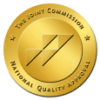When you’re ready for a real reset, our physician-led team provides stabilization, integrated behavioral therapy for kratom addiction, and a seamless path from detox to rehab to aftercare. If you’ve been searching for kratom rehab in Tennessee, we’ll help you start safely, build practical skills, and leave with a plan that actually fits your life.
Understanding Kratom Addiction
Kratom addiction, often referred to clinically as cannabis/kratom use disorder (CUD/KUD), depending on terminology, develops the same way many substance problems do: use → tolerance → dependence. [1]
What begins as a way to boost energy, ease pain, or steady mood can quietly become a daily necessity. Over time, your brain adapts; the same dose does less, so you increase potency or frequency.
When you try to cut back, a predictable cluster of symptoms can surface, like sleep disruption, low mood, anxiety/irritability, body aches, GI upset, and persistent cravings and those symptoms can persist even after detox unless you have tools and structure to manage them.
That’s the gap rehab is designed to fill.
Detox is the medical sprint that stabilizes your body; rehab is the training plan that strengthens motivation, coping, and routines so change lasts.
Structure that reduces decision fatigue. Early recovery fails when every hour requires willpower. A consistent schedule including wake/sleep times, therapy blocks, meals, movement, and downtime turns “try harder” into “follow the plan.” Residential treatment delivers the most structure; PHP/IOP provides strong support while you sleep at home.
Therapy dosage that fits your needs. Evidence-based care, including CBT to untangle thought–behavior loops, DBT for emotion regulation and distress tolerance, motivational work to lock in “why now” isn’t a one-time talk; it’s rehearsal. In rehab, you’ll practice micro-skills for cravings, sleep, and stress in real time, not just hear about them. This is practical kratom addiction treatment that Tennessee residents can use the same day they learn it.
Dual-diagnosis care that treats the drivers. Many people use kratom to manage anxiety, depression, trauma-related distress, ADHD stress, or chronic pain. [2] If those roots aren’t addressed, relapse risk stays high. Your plan integrates therapy with medication management (when clinically indicated) to steady sleep, mood, and attention while you build non-kratom coping. This is where rehab differs from willpower alone: you’re not asked to choose between feeling stable and staying off kratom.
Aftercare planning before discharge. You’ll leave with appointments on the calendar, including individual therapy, group schedule (PHP/IOP/OP), prescriber follow-up, and peer support, plus a written cravings plan (delay/deflect/substitute) and a realistic sleep protocol. The goal is a week-by-week roadmap, not vague intentions.
Risk Factors for Kratom Addiction
Kratom’s effects aren’t mysterious once you zoom in on the signals it sends. The plant’s main alkaloids—mitragynine and 7-hydroxymitragynine (7-OHM)—interact with receptor systems that help regulate reward, stress response, and pain modulation. [3]
These compounds “dock” to some of the same receptor families that respond to pain-relieving and stress-calming signals. That docking is partial, not full-force, which is why kratom can feel gentler than traditional opioids for some people, yet repeated use still teaches the brain to expect those signals.
Over time, the brain adapts: it dampens sensitivity to that external push and rewrites priorities around getting the next nudge of relief. That’s the learning loop rehab is designed to unwind.
Why do people feel “up,” then “flat?”
At lower levels, many users report a brightened, slightly stimulated state, feeling more alert, talkative, or motivated. At higher amounts, the experience can tilt toward calm or sedation.
This dose-dependent flip is common with compounds that touch arousal and pain-modulation pathways. [4] The tricky part is tolerance: as receptor sensitivity decreases with frequent use, the “sweet spot” moves.
You need more to feel the same lift, and the lift becomes less reliable. When you stop, the pendulum can swing the other way. Sleep is choppy, motivation is dull, and it’s hard to experience normal pleasure (anhedonia) for a while. That post-detox flatness isn’t proof you “need” kratom; it’s a temporary state while your reward system recalibrates.
What the body feels.
Because these receptor systems talk to more than mood, the body often broadcasts withdrawal and recovery in several channels:
- GI tract. Kratom can slow or unsettle digestion depending on dose and individual biology. When you cut back, it’s common to notice nausea, cramping, or loose stools, which is why hydration and simple, frequent meals matter early on. [5]
- Sleep architecture. Many people initially use kratom to fall asleep faster; over time, it can disrupt the balance of light, deep, and REM sleep. After stopping, insomnia and vivid dreams are common for several nights. Rebuilding a sleep routine and protecting it are cornerstones of recovery.
- Autonomic symptoms. The “automatic” nervous system may run hot for a bit: sweats, chills, faster pulse, blood-pressure swings, and that wired-but-tired restlessness. Gentle movement, breath work, and (when appropriate) symptom-targeted medications help settle this.
- Aches and fatigue. As external modulation falls away, muscle aches, headaches, and low energy often surface. These usually track with hydration, sleep, and pacing. Steady improvement beats all-or-nothing pushes.
What the brain learns—and why therapy matters.
Beyond chemistry, kratom use is a pattern: a cue (stress, pain, boredom, bedtime) → dosing → short relief → more cues. The brain starts predicting relief at certain times and places. That’s why cravings often spike at routine windows (morning, after work, late evening) and why willpower alone feels thin. Your nervous system is following a plan it has practiced dozens or hundreds of times.
Therapy changes that plan.
With behavioral therapy for kratom addiction, you identify the exact thoughts, sensations, and situations that precede dosing and install new responses.
Practically, that looks like: a brief delay script for cravings, simple substitutions that actually soothe (not just distract), and distress-tolerance skills for the ten minutes when urges peak. Pair that with a sleep protocol and a stress-load plan, and the “up-then-flat” cycle loses leverage.
Mood, anxiety, trauma, and pain—treat the drivers.
If you’re using kratom to blunt anxiety or low mood, to quiet trauma-linked hyperarousal, to push through ADHD-related overwhelm, or to self-manage chronic pain, those drivers must be addressed, or the brain will keep asking for the fastest fix it knows.
That’s where an integrated approach shines. It combines therapy with medication management when clinically indicated (for sleep, mood, attention, or pain strategies), so you don’t have to choose between feeling stable and staying off kratom.
Put together, the science tells a hopeful story. Your brain adapted to repeated signals; it can adapt back with the right inputs. Your body registered withdrawal in predictable systems; those systems settle with structure, nourishment, sleep, and targeted support.
Rehab rebuilds motivation and coping while the nervous system rebalances, turning a difficult few weeks into a sustainable new routine.
How do you know rehab and not just detox is the right next step?
When to Seek Kratom Rehab in Tennessee?
If you’re wondering whether your kratom use has crossed a line, this quick screen can help.
It isn’t a diagnosis. It’s a way to notice patterns that often point to the need for structured support.
As you read, count how many items apply to you in each bucket. If several resonate, a professional assessment is the best next step.
-
Initial use / Use Patterns:
- You use daily or near-daily, or most days, feel organized around dosing.
- Your dose has crept up over time to get the same effect.
- You’ve shifted to higher-potency products (extracts/concentrates) because powders don’t “work” anymore.
- You plan to keep using “occasional,” but it reliably becomes multiple doses or most of the day.
-
Control / Tolerance:
- You’ve tried to cut back through things like new rules, smaller scoops, and fewer times per day, but the changes don’t stick.
- You dose in the morning just to feel “normal,” steady, or able to function.
- You set limits (e.g., “not at night,” “no weekdays”), then find yourself breaking them.
- You hide or minimize your use to avoid questions or conflict.
-
Functioning / Dependence:
- Work or school performance has slipped: missed deadlines, lower grades, more mistakes, or warnings.
- Your motivation is down. Projects stall, hobbies feel flat, tasks pile up.
- You’ve begun to withdraw socially or choose people/places that make it easier to use without comment.
- Money is tighter due to buying kratom or missing work.
-
Impact on Health:
- Your sleep is inconsistent: trouble falling asleep, middle-of-the-night waking, or vivid dreams when you try to cut back.
- You notice anxiety, irritability, or mood swings, especially between doses.
- GI issues (nausea, cramping, diarrhea) show up when you reduce or delay use.
- You feel aches/fatigue, headaches, or “wired-tired” restlessness that resolves only after dosing.
-
Risks of Using Kratom
- You combine kratom with alcohol, benzodiazepines, opioids, or stimulants to “balance” effects.
- Driving, caregiving, or parenting feels compromised by dosing schedules or withdrawal.
- You’ve had near misses, such as accidents, conflicts at home, or disciplinary notes at work or school, linked to use.
- You’re spending significant time getting, using, or recovering, and other priorities are slipping.
What your checklist means
- 0–3 checks: Stay curious. You may benefit from education, sleep hygiene, and a brief consult to keep things from sliding.
- 4–7 checks: Consider a structured plan. Many people in this range do best with outpatient support (IOP/OP) or a short residential reset, especially if sleep and mood are unstable.
- 8+ checks or any high-risk item: It’s time for a comprehensive assessment and a clear starting level—detox (if needed), Residential, PHP/IOP, and a scheduled aftercare plan.
Remember, the core issue isn’t willpower. It’s a learned loop between stress, relief, and routines. Rehab gives you dosage of therapy, daily practice, and (when appropriate) medication management so you’re not relying on the same cycle to get through the day.
Not sure where to start?
Call Admissions for a same-day assessment. In a confidential conversation, we’ll review your checklist, your medical and mental health history, and outline a right-sized plan. If cost is a concern, our team can also Verify Insurance and explain deductibles, coinsurance, and authorization requirements in plain language before you commit.
If several buckets describe your week, you don’t have to fix it alone. A structured program turns “try harder” into followable steps, and that’s where momentum begins.
Therapies Used in Kratom Rehab
Good rehab isn’t a lecture; it’s a set of tools you actually use.
At Tennessee Detox Center, treatment blends medical oversight with evidence-based counseling so you can rebuild sleep, motivation, and coping while cravings lose their pull.
Here’s how each modality works specifically for kratom use patterns and how they fit together into a practical kratom recovery program you can follow day by day.
Kratom often rides on habit loops: cue → thought → dose → short relief. CBT helps you map that loop in detail and choose a different response before the automatic response kicks in.
- Habit loops & triggers: You’ll identify the exact windows that set you off (morning grogginess, post-work letdown, late-night worry) and the thoughts that justify dosing (“I won’t sleep without it,” “I deserve a break”).
- Cognitive restructuring: Together with your therapist, you’ll test those thoughts against evidence and replace them with workable statements that keep you moving (“My sleep protocol helps 8 nights out of 10; if it’s rough tonight, I’ll still be okay tomorrow”).
- Sleep protocol: CBT integrates a concrete wind-down (timed light exposure, caffeine cutoff, stimulus control, relaxation sequence) so your nervous system learns to settle without kratom.
- Relapse prevention plans: You’ll script how to handle high-risk days like travel, exams, conflict and keep a one-page plan on your phone.
Early recovery is full of high-arousal moments. DBT gives you a short list of actions to regulate the body and ride out urges.
- Distress tolerance: Skills like paced breathing (inhale 4, exhale 6), temperature changes (cool water on wrists/face), and brief grounding with the five senses, lower physiological intensity fast.
- Emotion regulation: You’ll learn to name what you feel, track how sensations shift, and choose an action that helps (walk, call, shower, stretch) rather than reach for a dose.
- Mindfulness: Simple attention training—60–120 seconds at a time—reduces reactivity and makes cravings feel more like passing weather than emergencies.
- Crisis plans: For predictable spikes (evenings, arguments, deadlines), you’ll build if/then steps: If cue X shows up, then I do Y for 10 minutes and text Z for accountability.
Ambivalence is normal. MI helps you resolve it without pressure.
- Values & goal alignment: You’ll connect reasons for change to things you care about —like showing up for family, saving money, training, and creativity — so motivation isn’t abstract.
- Change planning: You’ll set experiments rather than ultimatums (e.g., 14-day sleep protocol + two groups/week) and review results honestly, adjusting without shame.
- Confidence building: Small wins like one solid night of sleep or one urge you surfed are tracked, so momentum becomes visible and believable.
This is your time to personalize the work.
- Goal-based: Each week has a clear target (e.g., reduce morning dosing; handle Sunday scaries without kratom).
- Skill practice: You’ll rehearse scripts for declining invites, role-play tricky conversations, and troubleshoot real situations from the last seven days.
- Accountability: Your plan lives on paper: sessions, groups, peer support, sleep steps, and check-ins are scheduled and kept.
If trauma or chronic stress sits under your use, we don’t rip away a coping tool and leave you exposed.
- Safety & pacing: Sessions start with grounding skills. You choose the pace; no one pushes you into content you’re not ready to process.
- Trigger mapping: We’ll identify sensory, relational, and situational triggers and pair each with a stabilizing response.
- Family-of-origin (optional): When helpful, you can explore long-standing patterns such as people-pleasing, conflict avoidance and replace them with healthy boundaries.
Recovery skills get stronger when you rehearse them with others.
- Skills rehearsal: Practice urge surfing, refusal scripts, and sleep routines in real time.
- Peer accountability: Share the week’s hardest hour and what you tried; borrow tactics that worked for others.
- Social scripts: Plan low-risk hangouts, set time limits, and prepare exits so you can participate in life without slipping back into dosing routines.
Home can be your best support or your biggest trigger. Family sessions align expectations and reduce friction.
- Boundaries & communication: Decide what helps (predictable check-ins, rides to group) and what hurts (interrogations, late-night arguments).
- Relapse prevention at home: Set cues for tough nights (e.g., if sleep fails twice in a row, we call your therapist and add a peer meeting).
- Shared language: Learn a few phrases that defuse conflict and keep everyone on the same team.
Your nervous system needs calm inputs while the reward system recalibrates.
- Mindfulness: Brief daily practices (2–5 minutes) reduce baseline anxiety.
- Gentle movement: Walks, stretching, or yoga helps sleep and mood without overtaxing early recovery.
- Outdoor/creative blocks: Time outside or creative tasks (music, art) add natural reward back into the day.
- Nutrition for early recovery: Simple, frequent meals support stable energy and fewer GI swings.
How It Fits Together
Think of rehab as a coordinated circuit. Early in the week, you’ll focus on sleep and safety—CBT sleep steps, DBT regulation, and symptom-targeted medication management if needed.
Midweek, you’ll add exposure to real cues in a controlled way (social plans, evening routines) and return to the group to report what happened and refine tactics.
By week’s end, you’ll review wins and misses with your individual counselor, adjust next week’s plan, and confirm peer-support times. If 12-Step or other mutual-help groups are your preference, we’ll help you connect.
Why This Approach Works for Kratom
Kratom creates a dependable, short-term relief loop around pain, stress, and sleep. The answer isn’t just “stop.” It’s replace: swap dosing for skills you can deploy in minutes, swap late-night scrolling for a wind-down you can repeat, swap isolation for a structured community.
Across all of this, your medical and clinical teams coordinate. If anxiety spikes or sleep dips, the prescriber reviews short-term supports; if trauma cues surge, your therapist shifts pace and drills grounding; if a family pattern is inflaming evenings, we bring loved ones into a focused session (with your consent).
The goal isn’t perfection. It’s predictability. You’ll know what to do tonight, who to call tomorrow, and which steps to take next week.
When these elements are stacked like CBT for loops, DBT for physiology, MI for momentum, individual and group for practice, family and holistic for environment, you’re not hoping change sticks; you’re engineering it. That’s the difference between getting through a tough week and building a life that makes kratom unnecessary.
Medication Assisted Treatment for Kratom Rehab
Medication in rehab isn’t a magic switch, and we won’t pretend it is. The goal is to reduce the obstacles that make early recovery hard (insomnia, anxiety spikes, low mood), so you can fully participate in therapy and daily routines. Everything we use is individualized, physician-directed, and reassessed frequently to ensure the benefits outweigh the risks.
-
No Kratom-Specific MAT
There is no FDA-approved, kratom-specific medication that erases cravings. Instead, your prescriber may, when clinically indicated, use symptom-targeted medications to steady the pieces that tend to derail progress:
- Sleep: short-term, non–non-habit-forming options to help you fall and stay asleep while you rebuild a CBT-based sleep routine.
- Anxiety & autonomic overdrive: agents that calm the body (racing pulse, sweats, restlessness) so skills like paced breathing and grounding can work.
- Mood: time-limited supports for low mood or irritability while therapy reestablishes motivation and coping.
These are never one-size-fits-all. Doses are conservative, interactions are checked, and the plan is adjusted or tapered based on daily response.
-
Buprenorphine/Suboxone for Kratom Addiction
Most clients in kratom rehab do not need buprenorphine. However, if your history and current presentation suggest opioid-type dependence or polysubstance opioid use, your medical provider may discuss buprenorphine (Suboxone/Subutex) as part of a stabilization strategy under physician oversight and only when clinically indicated. If this route makes sense, we’ll outline:
- Induction: starting at the right time (with objective withdrawal present) to reduce risk of precipitated withdrawal.
- Titration: individualized dosing to achieve comfort without oversedation.
- Taper or maintenance: a clear plan aligned with your diagnosis, goals, and step-down level of care.
Regardless of medication decisions, therapy remains the foundation; medicine supports physiology, so counseling can change patterns.
-
Kratom Rehab Medication Management
Stabilization doesn’t end after the first few days. As you move from Medical Detox into residential or outpatient rehab, medication management continues alongside counseling. Expect:
- Regular check-ins with your prescriber to review sleep logs, anxiety levels, focus/energy, and any side effects.
- Tight coordination with your therapist: if DBT/CBT skills are helping, we may reduce or discontinue certain supports; if trauma cues or ADHD-related stress are flaring, we may adjust timing or choices.
- Step-down readiness: as your routines strengthen, we simplify the medication plan so you’re not dependent on short-term aids.
-
How Meds and Therapy Work Together
Medication can lower the “noise floor” (jittery body, 3 a.m. wake-ups, flat mood). CBT and DBT then have room to work: you practice urge-delay scripts, rebuild sleep architecture, and run real-life experiments around stress and social plans. Motivational Interviewing keeps the “why” clear, while trauma-informed work ensures pacing and safety if triggers are part of your story.
This is dual diagnosis kratom treatment in practice: targeted medical support plus therapy for co-occurring anxiety, depression, trauma, attention challenges, or pain strategies so you’re not choosing between feeling stable and staying off kratom.
Inpatient vs Outpatient Kratom Rehab
Choosing where to begin isn’t about toughness. It’s about fit. The right setting reduces the difficulty of early recovery and provides the exact amount of structure you need. At Tennessee Detox Center, you can start where you’ll succeed and step down as you stabilize.
Residential (Inpatient) for Kratom Addiction
What is Residential (Inpatient) for Kratom Addiction: A 24/7 therapeutic environment with medical oversight and a full daily schedule. You live on campus, follow a predictable routine, and practice skills with continuous support.
What you do here: Daily CBT/DBT/MI, individual counseling, focused groups, and family sessions (with your consent), plus holistic supports like mindfulness, gentle movement, and structured outdoor/creative time. Evenings reinforce sleep routines so nights get easier, not harder.
Who benefits most from Residential (Inpatient) for Kratom Addiction: Those with moderate–severe dependence, a relapse history, an unstable or high-trigger home, or significant co-occurring conditions (anxiety, depression, PTSD, ADHD, chronic pain). If your last quit attempt fell apart due to insomnia or stress spikes, the round-the-clock structure helps you finally get past the toughest stretch.
Why Residential (Inpatient) for Kratom Addiction works: You remove decision fatigue, stabilize sleep and mood, and stack wins quickly. By the time you step down, you’ve already practiced the habits you’ll need at home.
PHP (Partial Hospitalization Program) for Kratom Addiction
What is PHP (Partial Hospitalization Program) for Kratom Addiction: Full clinical days typically most weekdays while you sleep at home or in supportive housing.
What you do here: Multiple therapy hours per day (skills + process), medical check-ins, and continued practice of sleep, stress, and cravings tools. It’s the most robust outpatient option and a common next step after residential.
Who benefits most from PHP (Partial Hospitalization Program) for Kratom Addiction: Clients who improved in residential and are ready for real-world practice, or those who need a high-structure start but can safely sleep at home.
Why PHP (Partial Hospitalization Program) for Kratom Addiction works: You keep the intensity that built early momentum while testing skills in the real world every evening.
IOP (Intensive Outpatient Program) for Kratom Addiction
What is IOP (Intensive Outpatient Program) for Kratom Addiction: Several sessions per week often in the evening, designed to fit around work or school.
What you do here: Group skills work, weekly individual sessions, relapse-prevention planning, and medication management check-ins when appropriate. You’ll keep the sleep protocol and cravings plan front and center while handling daily responsibilities.
Who benefits most from IOP (Intensive Outpatient Program) for Kratom Addiction: Clients stepping down from PHP or those with steady daytime obligations who still need structured support to maintain progress.
Why IOP works for Kratom Addiction: It’s enough frequency to stay accountable and sharpen skills, without overwhelming your schedule.
OP/Aftercare for Kratom Addiction
What is OP/Aftercare for Kratom Addiction: Maintenance care at lower frequency, including periodic therapy, relapse-prevention refreshers, and prescriber follow-ups.
What you do here: Troubleshoot triggers as life changes, keep a weekly peer-support rhythm, and refresh skills during predictable stress seasons (holidays, travel, exams).
Who benefits most from OP/Aftercare for Kratom Addiction: Anyone finishing IOP or PHP who wants to protect gains and adjust supports as needs evolve.
How the Continuum Fits Together
Many clients start with detox if needed, move into Residential, then step to PHP, IOP, and OP/Aftercare as stability improves. Others begin in PHP or IOP when home is safe and symptoms are manageable.
Wherever you start, the plan is coordinated so you don’t have to rebuild your team at every step. If you’re comparing kratom rehab options in Tennessee, look for this continuity. It’s what turns a tough month into sustained progress within a realistic kratom recovery program.
Dual Diagnosis & Co-Occurring Disorders
Compassionate Assessment → Personalized Treatment Plan for Kratom Addiction Recovery
Your first task isn’t to “be perfect.” It’s to be understood. We begin with a comprehensive assessment: substance history (products, dose, timing), mental health (anxiety, depression, trauma symptoms, attention), pain profile, sleep, supports, and goals.
From there, we design a plan with clear targets for the next two weeks, including a sleep window, a cravings playbook, a therapy schedule, and (when appropriate) medication adjustments, so you know exactly what you’re working on each day.
If detox is needed, we complete that first; if not, we start in residential or outpatient with the same clarity about expectations and milestones.
Treat Co-Occurring Conditions: Kratom Addiction and Mental Health
Many people use kratom to blunt anxiety or low mood, to calm trauma-related hyperarousal, to power through ADHD-related overwhelm, or to self-manage chronic pain. If those drivers aren’t addressed, cravings remain persuasive. Our integrated approach combines:
- CBT/DBT for thought–behavior loops, distress tolerance, emotion regulation, and sleep routines.
- Trauma-informed therapy at a pace that preserves safety; grounding and trigger-mapping before deeper work.
- Pain-informed strategies—pacing, gentle movement, heat/ice, and recovery-focused nutrition—to replace all-or-nothing cycles that inflame symptoms.
- Stress-load planning: calendar hygiene, micro-breaks, and stacked habits that reduce evening overwhelm.
When indicated, the prescriber may recommend short-term, non–habit-forming supports for sleep or anxiety while therapy builds durable skills. This is dual diagnosis kratom treatment in practice: medical and psychological care working in tandem, so you don’t have to choose between feeling stable and staying off kratom.
Medication Management for Kratom Addiction
Medication isn’t the star; it’s scaffolding. We use the least medication needed, for the shortest appropriate time, and reassess frequently. Expect:
- Regular reviews of sleep logs, daytime energy, anxiety levels, and side effects.
- Coordination with your therapist to adjust supports as CBT/DBT skills take hold.
- Taper planning as routines stabilize, so you’re not dependent on short-term aids.
If your history shows opioid-type dependence or polysubstance use, the team will discuss options like buprenorphine when clinically indicated, always with a transparent plan (induction, titration, taper/maintenance) and alongside therapy.
Kratom Addiction Care Path: Detox → Residential → PHP → IOP → OP/Aftercare
You don’t need every step to succeed. The care path is a menu we sequence to your needs:
- Detox: brief medical stabilization when withdrawal risks are high.
- Residential: 24/7 structure for rapid skill-building and sleep/mood stabilization.
- PHP: full clinical days, home at night; bridges intensity and independence.
- IOP: several sessions weekly; integrates work/school with ongoing skills and medication management.
- OP/Aftercare: maintenance and relapse-prevention refreshers; prescriber follow-ups as needed.
Each step uses the same playbook with consistent language, the same cravings plan, and aligned goals, so gains compound rather than reset. That’s the backbone of kratom addiction treatment Tennessee clients can count on: integrated, paced, and personalized from the first assessment to the last follow-up.
If family dynamics are part of the pressure, we can incorporate Family Therapy (with your consent) to align boundaries and communication. If baseline stress is high, we bolster holistic supports such as mindfulness, gentle movement, and outdoor/creative time to quiet the nervous system.
As you approach discharge, Aftercare planning locks in therapy appointments, peer support, and prescriber check-ins so your safety net is active on day one at home.
Relapse Prevention for Kratom Addiction
Recovery lasts because it’s planned. Before you discharge, we translate everything you practiced in treatment into a week-by-week playbook you can follow at home. Think of it as turning insight into a habit so you don’t have to reinvent your routine every morning.
Cravings are predictable and time-limited. Your toolkit includes:
- Delay / Deflect / Substitute. Delay 10–20 minutes; Deflect by changing location or task (walk, shower, call a support); Substitute with pre-chosen actions that genuinely soothe, like tea, breathing drill, brief stretch, prepping tomorrow’s lunch.
- Urge surfing. Track where the urge rises, peaks, and falls in your body. Pair with paced breathing (inhale 4, exhale 6) until intensity drops.
- Cue exposure with your therapist. Rehearse high-risk situations deliberately —such as payday evenings and after-work slumps —and scrolling in bed, so the cues lose power over time.
Sleep is the foundation. You’ll leave with:
- Wind-down routine. Same 30–45 minute sequence nightly: lights down, screens off, simple relaxation.
- Caffeine cutoffs. Last caffeinated drink 8–10 hours before bed; hydration continues.
- Micro-breaks. Two or three five-minute resets throughout the day (walk, stretch, box breathing) to help prevent stress from spiking at night.
- Movement plan. Gentle, consistent activity (10–20 minutes most days) beats heroic workouts that crash your energy.
You don’t need a new friend group. You need new scripts.
- Boundaries. “I’m keeping nights low-key while I’m rebuilding sleep.”
- Low-risk hangouts. Coffee, daytime walks, matinees, dessert spots, board-game cafés.
- Leave early. Set an exit time before you arrive; drive yourself when possible.
- Accountability texts. Pick two people who get the first message if cravings spike: “Red light—call me when free?”
Connection beats isolation. Your Aftercare/Alumni coordinator helps you select:
- 12-Step or alternatives. Choose the culture that fits; we’ll provide locations or links.
- Weekly rhythm. Two predictable meetings per week (one you enjoy, one you attend no matter what).
- Sponsor/mentor. Someone you can text when plans wobble.
- Service. Small, regular service keeps you engaged and out of your head.
Structure keeps progress steady when life speeds up.
- 80–90% workload for the first two weeks to avoid overwhelm.
- Calendar hygiene. Put therapy, groups, and wind-down in the calendar first; layer tasks around them.
- Conflict-free appointment blocks. Ask supervisors or advisors for recurring time windows; offer productivity in return (e.g., early starts, clear deliverables).
Paying for Kratom Rehab
Money shouldn’t be the reason you wait. We make costs transparent up front so you can move forward confidently, whether you’re starting in Residential or stepping into PHP/IOP.
Fast Benefits Check
In one call or through our online form, Admissions will confirm:
- Levels covered: Residential, PHP/IOP/OP, and follow-up care.
- Deductible: What you pay before your plan shares costs.
- Coinsurance/Copays: Your share after the deductible.
- Out-of-network (OON): If your plan includes OON benefits, how they apply.
- Pre-authorization: Whether your insurer requires approval and what documentation they need.
You’ll get a clear estimate of out-of-pocket costs and what the plan is likely to pay with no jargon, no surprises.
Plans We Work With
We frequently work with Aetna, Cigna, BCBS/Optum, and UMR, among other commercial insurers. Coverage varies by employer group and policy, so a quick verification is essential even if your card lists one of these names. If you’re comparing options for kratom rehab in Tennessee, let us confirm your specifics before you request time off or arrange childcare.
Have this ready to speed things up:
- Insurance card (front/back)
- Policyholder name and date of birth
- Your contact info and preferred call time
- Any recent treatment dates (if applicable), so we can anticipate authorization
Why Choose our Kratom Rehab in Tennessee?
Choosing a rehab program is personal. You need a place that treats the whole picture — body, mind, routines, and relationships — without hype or guesswork. At Tennessee Detox Center, care is coordinated from your first call to your final aftercare appointment, so every step builds on the last. If you’re comparing options for kratom rehab in Tennessee, here’s what sets us apart.

Physician-Led + Integrated Therapy
Your plan starts with a medical evaluation and continues under provider oversight, so sleep, anxiety, mood, and pain are addressed alongside counseling. On the clinical side, you’ll work with an integrated team using CBT, DBT, and Motivational Interviewing, practical approaches that help you map triggers, regulate emotions, and turn intentions into actionable steps.
If trauma or chronic stress sits under your use, sessions are trauma-informed and paced for safety; grounding and trigger-mapping come before deeper work. With your consent, family therapy aligns home routines and boundaries so your environment supports recovery rather than fighting it.
We also thread in holistic supports like mindfulness, gentle movement, outdoor or creative time, and simple recovery-focused nutrition because a calmer nervous system makes cravings less persuasive.
Prefer community scaffolding? 12-Step involvement is available if it fits your values; if not, we’ll suggest peer alternatives that do. This is evidence-based care tailored to your life, not a one-size-fits-all track.

Continuity Under One Umbrella
Recovery is a sequence, not a single stop. We design clear handoffs for each stage so you never have to restart your story. If you need it, Medical Detox stabilizes you first; from there, you move seamlessly into the right therapeutic setting—Residential, PHP, IOP, or OP—with the same philosophy, shared records, and a team that already knows you.
Skills you practiced yesterday are reinforced today, not relearned from scratch. As discharge approaches, we lock in Aftercare: your first individual session, group schedule, prescriber follow-ups, and a peer-support rhythm that fits your week.
That continuity matters. It lowers relapse risk, preserves momentum, and turns early wins like better sleep, steadier mood, and fewer “hot hours” into a structure you can keep.

Nashville-Area Access + Fast Insurance Verification
Logistics can make or break a plan. Our Nashville-area location makes family involvement easier and simplifies the step-down from higher structure to community supports.
Before you arrive, Admissions completes a fast benefits check and handles pre-authorization when required, so you know coverage and out-of-pocket estimates up front. If timing is tight, we coordinate quick starts and map your first 72 hours: arrival, evaluation, initial skills, and sleep strategy. You’ll know exactly what to bring, when to show up, and what day two looks like with no guesswork.
When you put these pieces together —physician leadership, integrated therapy, real continuity, and practical logistics — you get more than a place to stay; you get a plan you can live with.
If you’re searching for a kratom rehab in Tennessee that treats you with dignity while giving you concrete tools, this is your path: stabilize, practice, step down, and stay connected through aftercare.
Start Kratom Rehab today at Tennessee Detox Center
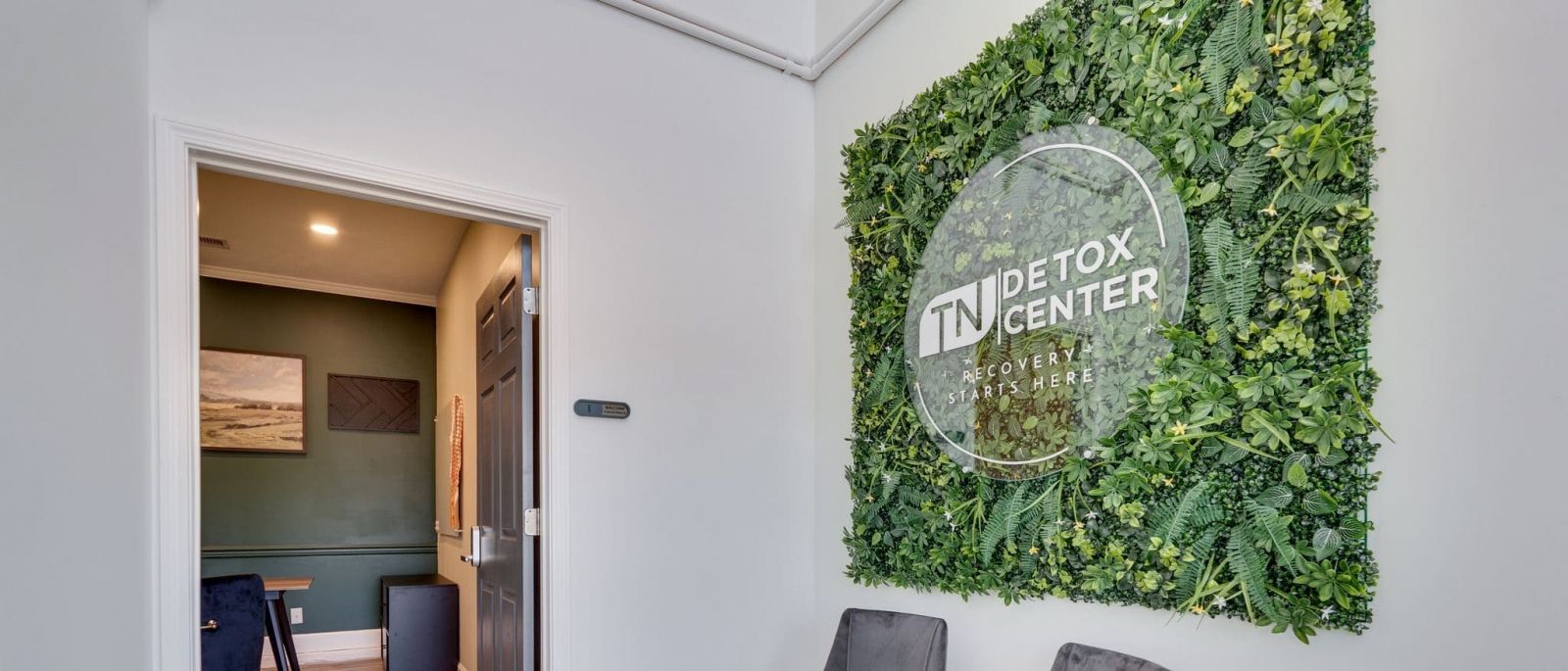
One confidential call gets you clarity and a plan. We’ll complete a same-day assessment, run a fast benefit verification, and map your first steps so you know exactly what to expect. Whether you begin with Detox, Residential, or Outpatient, we’ll coordinate a clear step-down plan so support tapers gradually as you get stronger.
Tell us what’s going on (dose, schedule, sleep, stress), and we’ll tailor recommendations to your life. If co-occurring anxiety, depression, trauma, attention issues, or pain are part of the picture, we’ll align medical and therapy supports from day one. You won’t be asked to choose between feeling stable and staying off kratom. We’ll help you do both.
We’ll map the right starting level —whether it’s detox, residential, or outpatient — and schedule your first 72 hours, including arrival, orientation, and initial skills. From there, we’ll lock in therapy appointments, peer support, and prescriber follow-ups to get momentum going immediately.

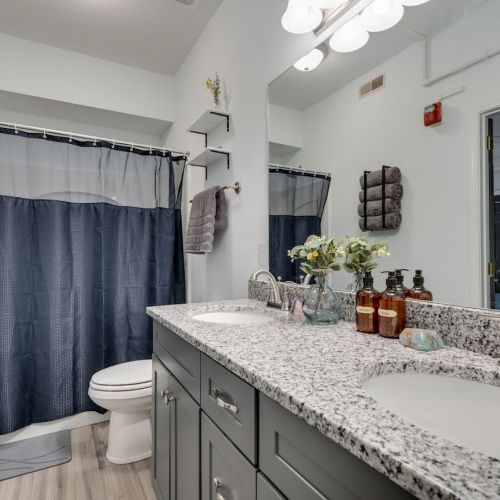

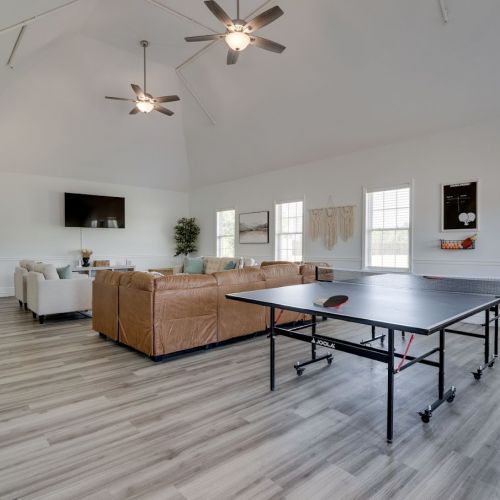




FAQs about Kratom Addiction Rehab in Tennessee
Kratom Rehab at Tennessee Detox Center
Kratom is often marketed as a natural supplement, but regular use can lead to opioid-like dependence and compulsive patterns of misuse. Tennessee Detox Center provides inpatient kratom rehab in Tennessee for individuals struggling to stop safely and maintain sobriety.
While kratom withdrawal may be milder than other opioids, psychological cravings, mood swings, anxiety, and irritability can make sustained recovery difficult without professional support. Many individuals who initially used kratom to self-manage pain or opioid cravings develop a cycle of reliance that requires structured treatment.
Our kratom rehab program addresses both the physical and emotional components of dependence. Treatment includes therapy, behavioral counseling, relapse prevention planning, and psychiatric evaluation when needed. Clients learn healthier coping mechanisms and strategies to manage stress without substance use.
At Tennessee Detox Center, we provide individualized residential care focused on long-term stability. If kratom use is interfering with your health, relationships, or daily functioning, contact us today for confidential rehab admissions and professional recovery support.
All content published on Tennessee Detox Center website pages is provided for informational purposes only and should not be interpreted as medical, psychological, or legal advice. This information is not intended to diagnose, treat, cure, or prevent any disease or condition and should not replace consultation with licensed healthcare professionals.
Addiction is a chronic, relapsing medical condition that requires individualized care. Treatment approaches, detox protocols, and rehabilitation services vary depending on numerous factors unique to each individual. No information on this website should be relied upon to make treatment decisions without professional guidance.
If you are experiencing an emergency situation, including overdose, withdrawal complications, suicidal ideation, or immediate risk to yourself or others, call 911 immediately. Tennessee Detox Center does not provide emergency medical services online or via website communication.
Never attempt to discontinue substance use or begin detox without proper medical supervision. Withdrawal can cause serious medical complications. Any information regarding detoxification is general in nature and does not substitute for physician-directed care.
Insurance information presented on this website is intended solely to assist users in understanding potential coverage options. Coverage is subject to verification, medical necessity determinations, and policy limitations. Tennessee Detox Center encourages direct contact with our admissions specialists to confirm benefits and eligibility.
We do not guarantee treatment outcomes, length of stay, insurance approvals, or placement availability. Outcomes depend on numerous clinical and personal factors.
External links are provided for convenience and informational purposes only. Tennessee Detox Center assumes no responsibility for third-party content or practices.
Use of this website does not establish a doctor-patient or therapist-patient relationship. Recovery requires professional support and individualized care.
The content available on Tennessee Detox Center pages is designed to provide educational information related to addiction, detoxification, rehabilitation, and recovery. This information should not be interpreted as professional medical advice or treatment recommendations.
Addiction treatment is highly individualized. Detox and rehab needs vary significantly based on health history, substance use patterns, and mental health considerations. Information provided is general and may not apply to all individuals.
If an emergency arises — such as overdose, severe withdrawal symptoms, or immediate danger — call 911 without delay. Online resources are not a substitute for emergency medical care.
Medical detox should always be conducted under professional supervision. Attempting detox without medical oversight can be dangerous.
Insurance information is provided as general guidance only. Coverage varies by plan and carrier. Tennessee Detox Center encourages all individuals to verify benefits directly with admissions staff.
Recovery outcomes are not guaranteed. Treatment effectiveness depends on many factors including engagement, clinical needs, and aftercare support.
References to external resources do not imply endorsement. Tennessee Detox Center is not responsible for third-party content.
Website use does not establish a provider-patient relationship.
-
Addiction Group. (n.d.). Tennessee drug and alcohol statistics. Retrieved July 28, 2025, from https://www.addictiongroup.org/tennessee/drug-statistics/
-
Substance Abuse and Mental Health Services Administration (SAMHSA). (2023). 2023 ICCPUD state report: Underage drinking prevention – Tennessee. U.S. Department of Health and Human Services. Retrieved from https://library.samhsa.gov/sites/default/files/tennessee-iccpud-state-report-2023.pdf
-
Tennessee Alcoholic Beverage Commission. (2024). Report to prevent underage drinking, drunk driving, and other harmful uses of alcohol (PC 961). State of Tennessee. Retrieved from https://www.tn.gov/content/dam/tn/abc-documents/abc-documents/PC-961-2024-Report-to-Prevent-Underage-Drinking-Drunk-driving-and-Other-Harmful-Uses-of-Alcohol.pdf
-
National Institute on Alcohol Abuse and Alcoholism (NIAAA). (2012). Alcohol withdrawal syndrome. In S. C. Merrill & B. S. Frances (Eds.), The management of alcohol use disorders: A practical guide for clinicians (NIH Publication No. 12–5191). National Center for Biotechnology Information. Retrieved from https://www.ncbi.nlm.nih.gov/books/NBK64119/

Medically Reviewed By:
Dr. Vahid Osman, M.D.
Board-Certified Psychiatrist and Addictionologist
Dr. Vahid Osman is a Board-Certified Psychiatrist and Addictionologist who has extensive experience in skillfully treating patients with mental illness, chemical dependency and developmental disorders. Dr. Osman has trained in Psychiatry in France and in Austin, Texas. Read more.

Clinically Reviewed By:
Josh Sprung, L.C.S.W.
Board Certified Clinical Social Worker
Joshua Sprung serves as a Clinical Reviewer at Tennessee Detox Center, bringing a wealth of expertise to ensure exceptional patient care. Read More
The Joint Commission – The Gold Seal of Approval® signifies that Tennessee Detox Center meets or exceeds rigorous performance standards in patient care, safety, and quality. It reflects a commitment to continuous improvement and clinical excellence.
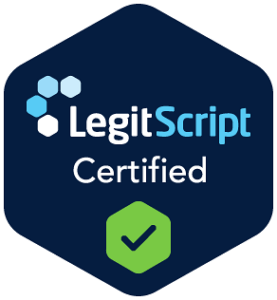
LegitScript Certified – Confirms that Tennessee Detox Center operates in full compliance with laws and regulations, and meets high standards for transparency and accountability in addiction treatment marketing.
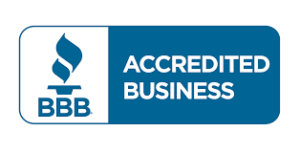
BBB Accredited – Demonstrates ethical business practices, commitment to customer satisfaction, and a trusted reputation within the community.
Psychology Today Verified – Indicates that Tennessee Detox Center is listed on Psychology Today, a trusted directory for verified mental health providers and treatment centers.
HIPAA Compliant – Ensures all patient health information (PHI) is protected and managed in accordance with strict federal privacy and data security standards.
ASAM Member – Tennessee Detox Center is a proud member of the American Society of Addiction Medicine (ASAM), reflecting a commitment to science-driven and evidence-based treatment standards.

Rutherford County Chamber of Commerce – Membership signifies active participation in the local community and support for regional growth and civic collaboration.
Get Family Support Now
Supporting Families Through Recovery
We understand addiction affects the whole family. Our comprehensive family program helps rebuild trust and restore relationships.
Weekly Family Therapy Sessions
Educational Workshops
Support Groups
Communication Skills Training
-
Addiction Group. (n.d.). Tennessee drug and alcohol statistics. Retrieved July 28, 2025, from https://www.addictiongroup.org/tennessee/drug-statistics/
-
Substance Abuse and Mental Health Services Administration (SAMHSA). (2023). 2023 ICCPUD state report: Underage drinking prevention – Tennessee. U.S. Department of Health and Human Services. Retrieved from https://library.samhsa.gov/sites/default/files/tennessee-iccpud-state-report-2023.pdf
-
Tennessee Alcoholic Beverage Commission. (2024). Report to prevent underage drinking, drunk driving, and other harmful uses of alcohol (PC 961). State of Tennessee. Retrieved from https://www.tn.gov/content/dam/tn/abc-documents/abc-documents/PC-961-2024-Report-to-Prevent-Underage-Drinking-Drunk-driving-and-Other-Harmful-Uses-of-Alcohol.pdf
-
National Institute on Alcohol Abuse and Alcoholism (NIAAA). (2012). Alcohol withdrawal syndrome. In S. C. Merrill & B. S. Frances (Eds.), The management of alcohol use disorders: A practical guide for clinicians (NIH Publication No. 12–5191). National Center for Biotechnology Information. Retrieved from https://www.ncbi.nlm.nih.gov/books/NBK64119/

Medically Reviewed By:
Dr. Vahid Osman, M.D.
Board-Certified Psychiatrist and Addictionologist
Dr. Vahid Osman is a Board-Certified Psychiatrist and Addictionologist who has extensive experience in skillfully treating patients with mental illness, chemical dependency and developmental disorders. Dr. Osman has trained in Psychiatry in France and in Austin, Texas. Read more.

Clinically Reviewed By:
Josh Sprung, L.C.S.W.
Board Certified Clinical Social Worker
Joshua Sprung serves as a Clinical Reviewer at Tennessee Detox Center, bringing a wealth of expertise to ensure exceptional patient care. Read More
The Joint Commission – The Gold Seal of Approval® signifies that Tennessee Detox Center meets or exceeds rigorous performance standards in patient care, safety, and quality. It reflects a commitment to continuous improvement and clinical excellence.

LegitScript Certified – Confirms that Tennessee Detox Center operates in full compliance with laws and regulations, and meets high standards for transparency and accountability in addiction treatment marketing.

BBB Accredited – Demonstrates ethical business practices, commitment to customer satisfaction, and a trusted reputation within the community.
Psychology Today Verified – Indicates that Tennessee Detox Center is listed on Psychology Today, a trusted directory for verified mental health providers and treatment centers.
HIPAA Compliant – Ensures all patient health information (PHI) is protected and managed in accordance with strict federal privacy and data security standards.
ASAM Member – Tennessee Detox Center is a proud member of the American Society of Addiction Medicine (ASAM), reflecting a commitment to science-driven and evidence-based treatment standards.

Rutherford County Chamber of Commerce – Membership signifies active participation in the local community and support for regional growth and civic collaboration.
Compassionate Rehab Services
Evidence-Based Treatment

Get Family Support Now
Supporting Families Through Recovery
We understand addiction affects the whole family. Our comprehensive family program helps rebuild trust and restore relationships.
Weekly Family Therapy Sessions
Educational Workshops
Support Groups
Communication Skills Training
Hear directly from those who have walked the path to recovery. Our patients’ stories highlight the compassionate care, effective programs, and life-changing support they’ve experienced. Let their journeys inspire you as you take your first steps toward healing.










Thank you all so much!




















The facility itself is clean, well-maintained, and equipped with all the necessary amenities to provide a serene and supportive environment.
What truly stands out is the personalized approach to care. The team developed a treatment plan tailored to my specific needs, incorporating both medical and holistic therapies. This comprehensive approach not only addressed my physical withdrawal symptoms but also supported my mental and emotional well-being.
The counselors and therapists offer a range of therapies that helped me understand the root causes of my addiction and develop effective coping strategies. Group therapy sessions provided a safe space to share experiences and gain insights from others on similar journeys.
Overall, my experience with this medical detox program was life-changing. The compassionate and skilled staff, combined with the personalized treatment approach, provided me with the foundation I needed for a successful recovery. I highly recommend this facility to anyone seeking a safe and supportive environment for detox and recovery.
But it's the people who make this place truly special. The staff, they've been there, they understand the struggle. No judgment, just support, encouragement, and a genuine desire to help you heal. They treated me like an old friend, even though I was just visiting for my buddy.
They've got a whole range of therapies to help you on your journey – individual counseling, group sessions, and even a fitness center to get you moving again. It's not just about detox. It's about rebuilding your life from the ground up.
My friend, the owner, he's living proof that this place works. He poured his heart into creating a haven for those seeking recovery, and his passion shines through in every detail.
So, if you're ready to take that first step, this is the place. Trust me, they'll walk beside you every step of the way.


